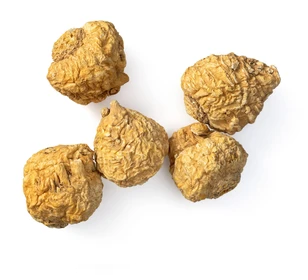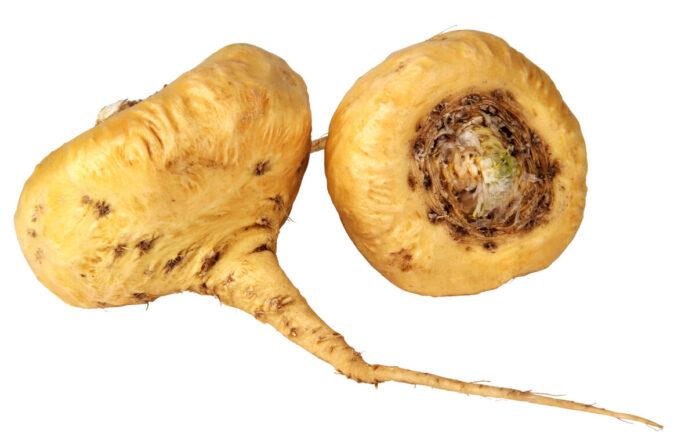INTRODUCTION
English name: Maca root, Lepidium meyenii
Urdu name: کوڑا جڑ
Spanish and Quechua name: maca-maca, maino, a yak chichira, and a yak willku
Maca root is the tuber of the maca plant (Lepidium meyenii), which is native to the high Andes of Peru. It is often used in its dried, powdered form as a dietary supplement. The root is known for its potential health benefits, including enhanced energy, stamina, and libido. In addition to its traditional uses, maca root is also believed to support hormonal balance and improve mood. It is sometimes called “Peruvian ginseng” because of its adaptogenic properties, though it is not related to true ginseng.

Forms
Maca is consumed in various forms, such as:
TYPES
Maca root comes in several types, which differ mainly in color and some properties. The three primary types are:
1.Yellow Maca:
- Characteristics: This is the most common and widely used type. It has a mild, slightly nutty flavor.
- Uses: Yellow maca is often used for general energy and stamina enhancement, hormonal balance, and overall health. It’s considered versatile and suitable for most people.
2.Red Maca:
- Characteristics: Red maca has a slightly sweeter flavor and is known for its reddish hue.
- Uses: It’s often recommended for supporting prostate health and has been studied for its potential benefits in bone density and reducing inflammation. Some people also use it for hormonal balance and improved mood.
3.Black Maca:
- Characteristics: Black maca has a darker color and a more robust, earthy flavor.
- Uses: This type is frequently used to enhance energy, stamina, and cognitive function. It’s also considered beneficial for improving libido and fertility. Black maca is often touted for its potential to support endurance and strength.
USES
Maca root is used for a variety of purposes, primarily for its potential health benefits. Here are some common uses:

- Energy and Stamina: Many people use maca root to help boost their energy levels and enhance physical endurance.
- Libido and Sexual Health: Maca is often taken to improve sexual desire and function. Some studies suggest it may have a positive effect on libido.
- Hormonal Balance: It is thought to help support hormonal balance, particularly in women, potentially aiding in symptoms of menopause or menstrual irregularities.
- Mood and Mental Clarity: Maca is sometimes used to improve mood and cognitive function, potentially helping with stress and mental clarity.
- Fertility: Traditional use includes enhancing fertility in both men and women. Some research supports this, though results can vary.
- Overall Wellness: It’s used as a general health tonic, believed to provide essential nutrients and antioxidants, support immune function, and improve overall vitality.
- Adaptogen: Maca is considered an adaptogen, which means it may help the body adapt to stress and maintain balance.
HEALTH BENEFITS
Maca root is associated with a range of potential benefits, although individual responses can vary, and more research is needed to confirm some of these effects. Here are some commonly reported benefits:

- Enhanced Energy and Stamina: Maca is often used to boost energy levels and improve physical endurance. Many people find it helps them feel more energized throughout the day.
- Improved Libido: Maca has a long history of use for increasing sexual desire and function. Some studies support its potential to enhance libido in both men and women.
- Hormonal Balance: Maca may help balance hormones and alleviate symptoms related to hormonal fluctuations, such as those experienced during menopause or menstruation. It is thought to support overall endocrine health.
- Mood and Mental Clarity: Some users report improved mood and mental clarity when taking maca. It may help reduce feelings of anxiety and depression, though more research is needed to confirm these effects.
- Fertility Support: Traditional use of maca includes enhancing fertility. Some studies suggest it may support reproductive health and improve fertility in both men and women.
- Bone Health: Red maca, in particular, has been associated with potential benefits for bone health, possibly helping to improve bone density and reduce the risk of osteoporosis.
- Antioxidant Properties: Maca root contains antioxidants, which can help protect the body from oxidative stress and inflammation, contributing to overall health and longevity.
- Adaptogenic Effects: As an adaptogen, maca may help the body manage stress and maintain balance, supporting overall resilience and well-being.
- Improved Cognitive Function: Some research suggests that maca might support cognitive function, enhancing memory and mental performance.
Side Effects of Maca

Health authorities’ rate maca root and maca powder as generally safe, but some users have reported side effects. These include moodiness, cramping, stomach distress, and insomnia. In addition, some women say that maca affected their menstrual cycles. Those who are pregnant or breastfeeding should not use maca as there is not enough information about its safety. Here are some health risks and considerations to keep in mind:
- Hormonal Effects: Maca can influence hormone levels, so individuals with hormone-sensitive conditions (like breast cancer, prostate cancer, or endometriosis) should be cautious and consult their healthcare provider before using maca.
- Digestive Issues: Some people might experience gastrointestinal discomfort, such as bloating, gas, or stomach cramps, especially if they consume maca in large quantities.
- Allergic Reactions: Although rare, some people may be allergic to maca. Symptoms of an allergy could include rash, itching, or swelling. If you experience any allergic reactions, discontinue use and seek medical advice.
- Interactions with Medications: Maca may interact with certain medications, especially those that affect hormone levels or blood pressure. If you’re taking medications or have underlying health conditions, it’s important to consult with your healthcare provider.
- Pregnancy and Breastfeeding: There is limited research on the safety of maca during pregnancy and breastfeeding. It’s generally recommended to avoid using maca during these periods unless advised otherwise by a healthcare provider.
- Quality and Contamination: The quality of maca supplements can vary. Some products might be contaminated with heavy metals or other substances. Choosing reputable brands and checking for third-party testing can help mitigate this risk.
- Overuse: Excessive use of maca can lead to imbalances in the body. Stick to recommended dosages and consult a healthcare provider for personalized advice.
This Article is for Basic Information. Contact a professional doctor before using it.
HAKEEM KARAMAT ULLAH
+923090560000




